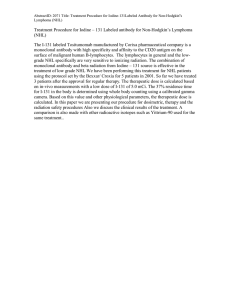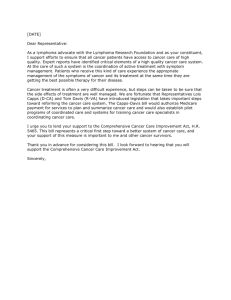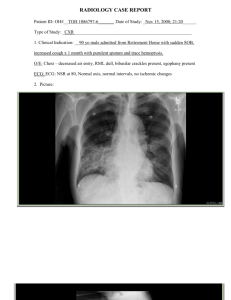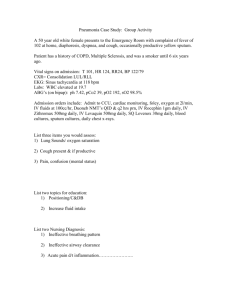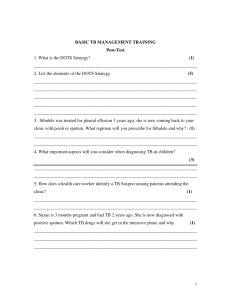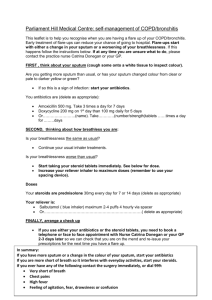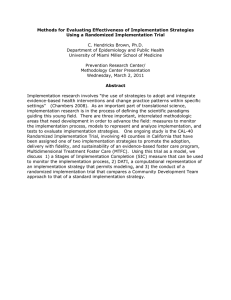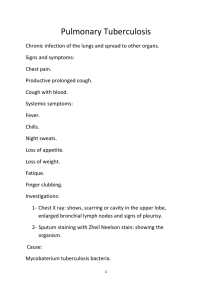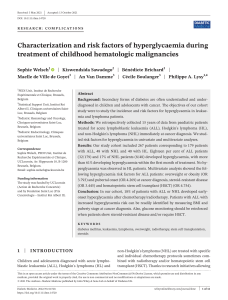Provide a brief abstract of the research protocol. This
advertisement
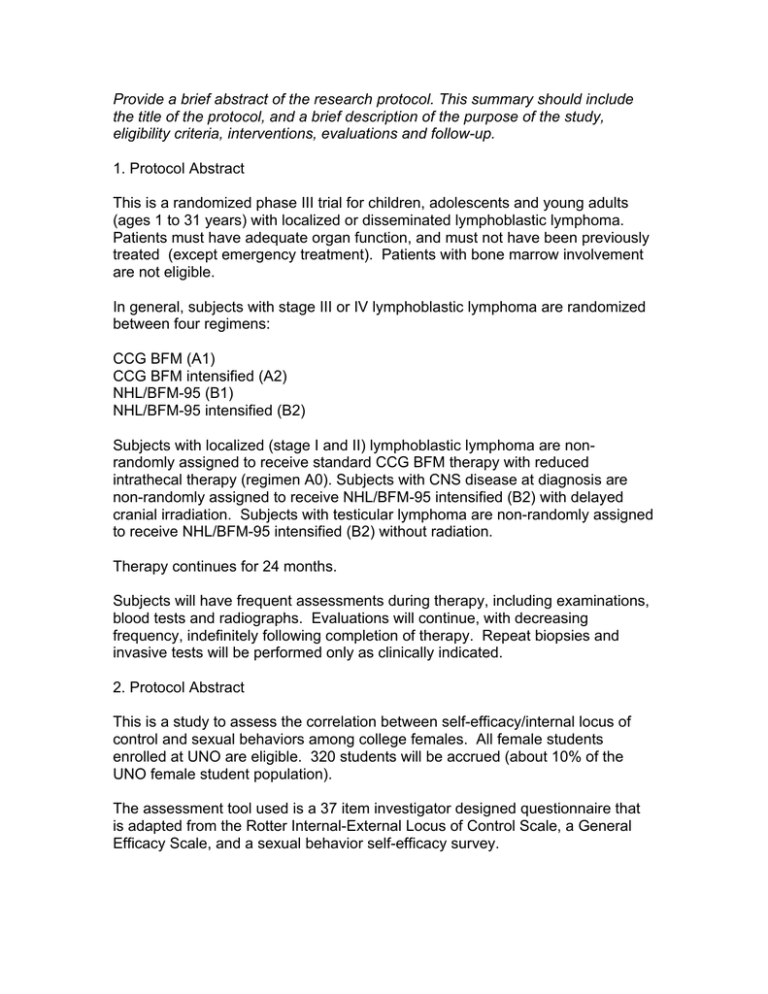
Provide a brief abstract of the research protocol. This summary should include the title of the protocol, and a brief description of the purpose of the study, eligibility criteria, interventions, evaluations and follow-up. 1. Protocol Abstract This is a randomized phase III trial for children, adolescents and young adults (ages 1 to 31 years) with localized or disseminated lymphoblastic lymphoma. Patients must have adequate organ function, and must not have been previously treated (except emergency treatment). Patients with bone marrow involvement are not eligible. In general, subjects with stage III or IV lymphoblastic lymphoma are randomized between four regimens: CCG BFM (A1) CCG BFM intensified (A2) NHL/BFM-95 (B1) NHL/BFM-95 intensified (B2) Subjects with localized (stage I and II) lymphoblastic lymphoma are nonrandomly assigned to receive standard CCG BFM therapy with reduced intrathecal therapy (regimen A0). Subjects with CNS disease at diagnosis are non-randomly assigned to receive NHL/BFM-95 intensified (B2) with delayed cranial irradiation. Subjects with testicular lymphoma are non-randomly assigned to receive NHL/BFM-95 intensified (B2) without radiation. Therapy continues for 24 months. Subjects will have frequent assessments during therapy, including examinations, blood tests and radiographs. Evaluations will continue, with decreasing frequency, indefinitely following completion of therapy. Repeat biopsies and invasive tests will be performed only as clinically indicated. 2. Protocol Abstract This is a study to assess the correlation between self-efficacy/internal locus of control and sexual behaviors among college females. All female students enrolled at UNO are eligible. 320 students will be accrued (about 10% of the UNO female student population). The assessment tool used is a 37 item investigator designed questionnaire that is adapted from the Rotter Internal-External Locus of Control Scale, a General Efficacy Scale, and a sexual behavior self-efficacy survey. Investigator will present a description of the research to students prior to each of 10 undergraduate classes. Potential subjects will be given a copy of the CF to review and then the investigator will return to the same class at least one week later. At this time all students in the class will be given an anonymous questionnaire to complete. Those who wish to participate will complete the questionnaire and deposit in a bin at the end of class. Those declining to participate will be asked to deposit the uncompleted questionnaire in the same bin at the end of class. There will no subject identifiers. Data will be analyzed using the Mann-Whitney-Cox test for correlations. 3. Protocol Abstract This is a phase III randomized placebo controlled trial to determine the safety and efficacy of inhaled Aztreonam for children (>13 years of age) and adults with cystic fibrosis and Pseudomonas aeruginosa in sputum culture. Patients with pneumonia, with history of Burkholderia cepacia in sputum or receiving antibiotics are not eligible. Subjects undergo a baseline evaluation including history, physical examination, blood tests, sputum culture, and spirometry. Subjects are randomized to receive one of three different doses of Aztreonam for inhalation (AI) or one of two different doses (volumes) of saline placebo. Treatments are twice daily for 14 days. Subjects are seen in clinic for 5 visits (screening [d-7], baseline [d0], d7, d14 and d28). Visits include history, physical examination, blood tests, sputum culture, and spirometry. Some visits also include blood and sputum collection for Aztreonam levels.
